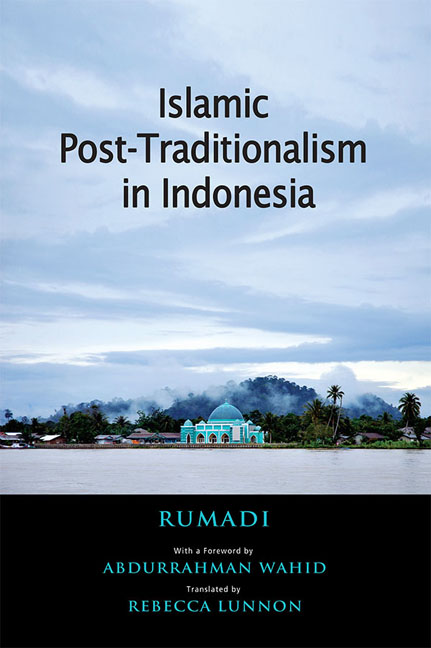2 - NU Intellectualism: Foundations
Published online by Cambridge University Press: 20 May 2017
Summary
FORMATION OF ISLAMIC INTELLECTUALISM IN THE ARCHIPELAGO
Before discussing the foundations of NU intellectualism, it is necessary to examine the initial process behind the formation of the tradition of intellectualism in the Indonesian archipelago more generally. It is necessary to show that the formation of NU intellectualism was not something that happened out of the blue. Rather, the process involved connections with and continuity of the development of thought that was occurring across the Islamic world, especially in Mecca and Medina, which represented the centre of Islamic development. However, it is important to note that in addition to continuity, there was also a dynamic change of past traditions. NU's connection with the tradition of intellectualism in the past was what prevented NU from severing ties with the classical intellectual tradition, and as such, NU is often known as a traditional organization.
The question is, how was NU connected to the intellectual heritage of the ulama (Islamic scholars) of the archipelago? This question is quite important because the tradition of NU intellectualism that has developed tends to reveal a greater connection to Middle Eastern intellectual heritage than to intellectualism within the archipelago. This is apparent in the wealth of classical books or kitab taught in pesantren(traditional Islamic boarding schools), which for the most part are written by Middle Eastern ulama. On this basis, tracking the tradition of intellectualism in the archipelago is intended to form the foundation on which to view the relationship between NU and Indonesian intellectualism. In order to do so, patterns in Indonesian Islam will first be discussed.
Understanding Islam in Indonesia is possible through an examination of how Islam came to Indonesia. There are several theories as to the origin of Islam in Indonesia. The key questions answered by these theories are: when, from where, by whom, and how was Islam brought to Indonesia? In Azyumardi Azra's study, there are at least three theories as to how Islam came to Indonesia. The first theory is that Islam entered Indonesia in the seventh century CE or the first century H (of the Islamic calendar), directly from Saudi Arabia (Handramaut) to the coast of Aceh. This theory was also confirmed in a 1962 seminar in Medan on the coming of Islam to Indonesia.
- Type
- Chapter
- Information
- Islamic Post-Traditionalism in Indonesia , pp. 15 - 94Publisher: ISEAS–Yusof Ishak InstitutePrint publication year: 2015



